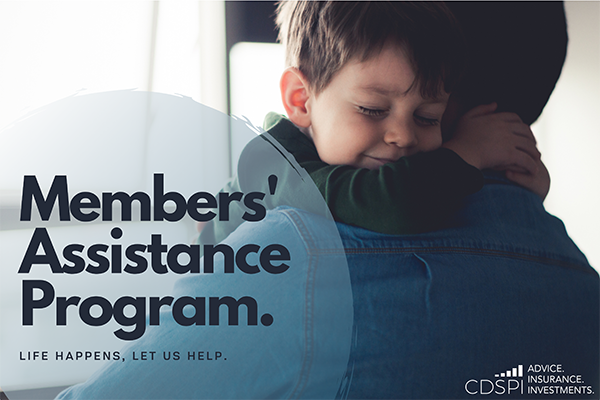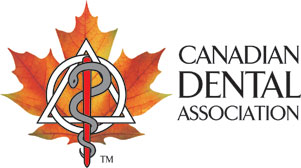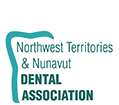
Free counselling, referral and information service for dentists, dental office employees, and their families.
Scenario
The facts and figures represented in this case study are fictional and do not represent actual provincial guidelines. The purpose of this case study is to demonstrate how businesses and individuals can avail of multiple federal funding programs.
Ashley runs her own dental practice in Brandon, Manitoba. This year, like many other dentists, she has been challenged in managing her practice from the shut down in March, April and May to new regulations for operating including spacing, equipment needs and PPE. In reopening, Ashley's practice was busier than ever try to catch up with the backlog of client's needs. Unfortunately, in October, one of the staff members came to work unknowingly with COVID-19 and the office once again needed to close for two weeks (October 6 - October 20).
Ashley's dental practice has a revenue decline of 55% when comparing October 2020 to October 2019. Worried about how she is going to pay her employees and rent, Ashley reached out to her accountant to see if there were any government assistance programs that she could access. Ashley learned she qualified for a wage subsidy (CEWS), a rent subsidy (CERS) and could apply for a business loan (CEBA). The accountant summarized the assistance to Ashley as follows:
Canada Emergency Wage Subsidy (CEWS)
Ashley's dental practice experienced a greater than 50% decline in revenue when comparing October 2020 to October 2019. Thus, the dental practice is eligible for both the base subsidy and top-up subsidy for eligible remuneration paid to employees from September 27 to October 24, 2020. Weekly remuneration per employee is limited to $1,129 which will not impact Ashley's practice. She employs 6 staff, all arm's length, for $1,000 per week each.
The base and top-up subsidy available are 40% and 6.25% [1.25 x (55% - 50%)] respectively for a combined subsidy rate of 46.25%. Thus, the CEWS claim available is $11,100 [(46.25% x $1,000/week x 4 weeks) x 6 employees].
Canada Emergency Rent Subsidy (CERS)
Pursuant to a lease, Ashley's dental practice pays rent of $20,000 per month pre-tax. Given the 55% decline in October 2020 qualifying revenue as compared to October 2019 qualifying revenue, Ashley's practice is eligible for the base rent subsidy of $9,250 (46.25% of the $20,000 rent expense).
It was explained to Ashley that up to 25% of additional support could be available if the dental practice closure in October was pursuant to a Public Health Order. If it is determined that Ashley's practice was issued a public health order by a federal, provincial, or municipal government or a local health authority because of the COVID-19 exposure within her practice and the practice faced sanctions if it did not comply, then the closure of the practice from October 6 to October 20 would qualify for Lockdown support under the CERS. The available subsidy of 25% is reduced by the portion of days the practice was closed, 14 days, to the number of days in the period, September 27 to October 24, 28 days. As such, the Lockdown support is equal to $2,500 (25% x 14/28 days x $20,000 rent).
The total possible CERS available to Ashley's dental practice for the period of September 27 to October 24, 2020 is $11,750 ($9,250 + $2,500) assuming the practice was issued a Public Health Order to close due to the COVID-19 exposure.
If Ashley's dental practice paid rent to a non-arm's length holding company, the dental practice would not qualify for the CERS. Although, it may be possible for the holding company to access the CERS if it with each member of its affiliated group jointly elects to determine their qualifying revenue on a consolidated basis.
Canada Emergency Business Account (CEBA)
Ashley's practice has already applied and received a $40,000 CEBA loan. This program was expanded as of December 4, 2020 and now Ashley's practice may apply for an additional $20,000 loan to assist in paying non-deferrable expenses such as wages, rent, insurance and utilities. Both the $40,000 and $20,000 will be interest free until December 31, 2022. If $40,000 of the combined loans is repaid by December 31, 2022, then $20,000 will be forgiven to Ashley's dental practice. Should Ashley's practice not be able to repay $40,000 by December 31, 2022, the remaining principal will incur interest at 5% per annum starting on January 1, 2023 and must be fully repaid by December 31, 2025.
Ashley is grateful to discover that she may access $27,350 between the CEWS and CERS to pay for wages and rent in addition to securing an additional $20,000 interest-free loan until December 31, 2022.
Need help? The Canadian Dental Association's Help Desk is available to dentists and dental office employees across Canada to provide guidance on how to navigate and access federal government support programs. Please call toll-free 1-866-232-0385, Mon-Fri, from 7:30 a.m. to 8:00 p.m. EDT. This information does not replace professional legal or accounting advice. To find the best approach to meet specific needs, individuals are encouraged to consult a lawyer, accountant or banker.
Last updated: December 4, 2020











